Former Mayor Miro Weinberger reflects on 12 years in office, and his one regret
- Oops!Something went wrong.Please try again later.
Miro Weinberger is a regular citizen again after serving 12 years as Burlington's mayor, second only to Peter Clavelle, who was mayor for 15 years, 12 of them consecutively before being interrupted by a "voter-enforced sabbatical," Weinberger joked during an exit interview last week.
Progressive Emma Mulvaney-Stanak took the reins of the city on Monday as Burlington's first female and openly queer mayor. Weinberger, a Democrat, announced last September he would not be running for a fifth three-year term as mayor.
Weinberger said he leaves office satisfied he kept his promises to Burlington voters to resolve the city's financial problems and streamline Burlington's regulatory bureaucracy to enable more and faster development.
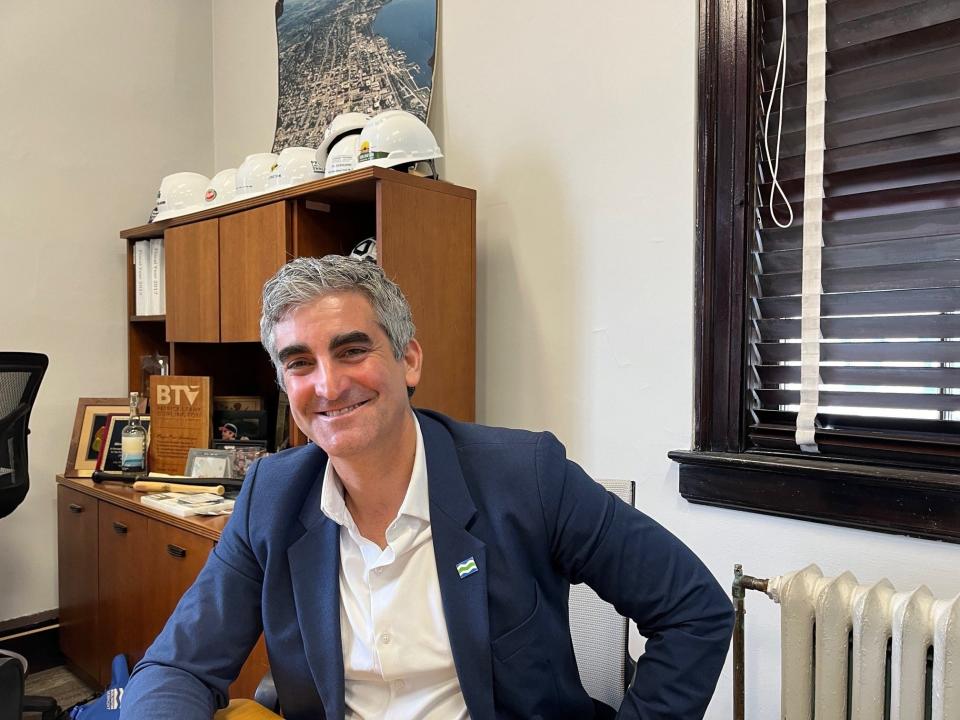
"I think I made good on the promise I made as a first-time candidate that we were going to get projects going again," Weinberger said. "We resolved 30 years of uncertainty about what would happen with the Moran building and turned that from an eyesore into a landmark on the waterfront that will become an increasingly more important public space in the years to come."
The Moran plant was a former power station on the shores of Lake Champlain that sat for years as a hulking wreck without a purpose. Rather than demolish it, Weinberger decided on stripping it down to its steel frame as a landmark of sorts, with plans to incorporate ice skating, a marketplace and more in the future.
Former opponent sees mixed track record from Weinberger's time as mayor
Max Tracy is a former Progressive City Council member who served for 10 of Weinberger's 12 years as mayor, before running against him for his last term. Tracy lost to Weinberger by the slimmest of margins, a little over 100 votes. Tracy said the city made "significant progress" under Weinberger on its financial health, as well as its infrastructure.
"Those are two positives coming out of Miro's tenure," Tracy said. "It's interesting because I feel like Miro came in with the idea he was going to get long-stalled projects completed. He has a mixed track record on that. I look at the Moran plant as another example (of mixed results). It's certainly not resolved as a full project in the sense there's a lot more work potentially to be done on that site."
Weinberger quadrupled the number of homes built during his 12 years
Another success Weinberger cites is 2,000 new homes built in Burlington during his administration, compared to only 500 homes built in the 12 years prior to his administration. He defines a home as everything from an accessory dwelling unit to an apartment, condominium or house.
"I knew we needed a lot more housing," Weinberger said. "I knew back then and know now, name a Burlington problem, name a Vermont problem, and more housing is probably the answer."
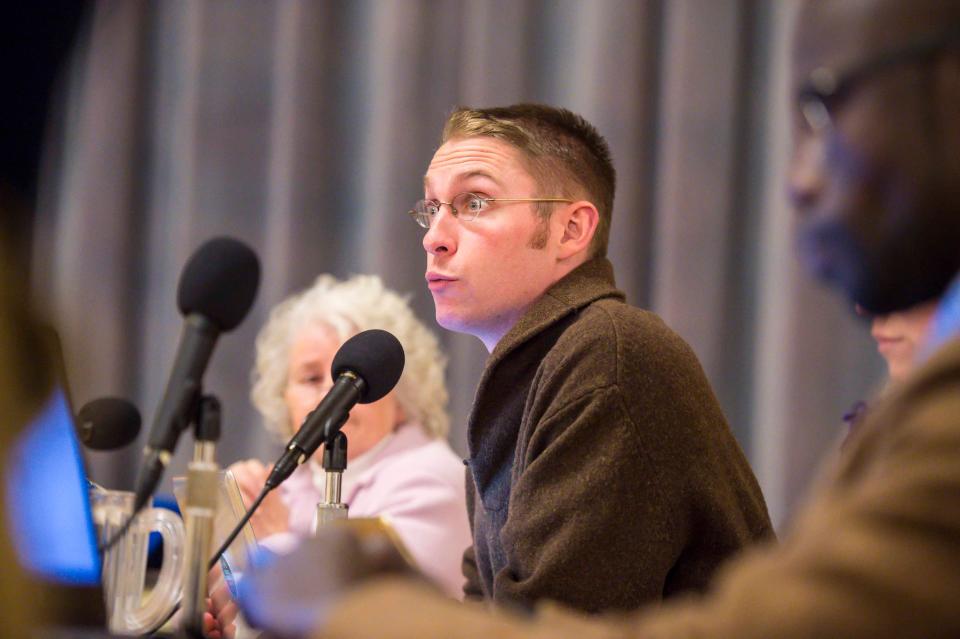
The problem remains, 2,000 homes notwithstanding, according to Tracy.
"I really reject the characterization of this is success when so many people continue to suffer as it relates to housing, whether high cost, quality, inability to find housing or ability to pursue home ownership, particularly black home ownership," Tracy said.
CityPlace is not a failure, Weinberger says
Weinberger also takes credit for CityPlace, the mixed-use development now rising in the center of downtown Burlington, bringing hundreds of apartments and ground floor retail to the city. For years, the project was mired in legal action brought against original New York City developer Don Sinex by a handful of neighbors who objected to its scale.
To make matters worse, Sinex seemed unable to secure the financing needed to begin construction after demolishing the indoor mall that formerly occupied the site, leaving a weed-infested landscape of dirt and rocks that quickly became known as "the pit." The project got underway soon after it was taken over by three local businessmen: Scott Ireland of S.D. Ireland Companies, Dave Farrington of Farrington Construction, and Al Senecal of Omega Vermont.
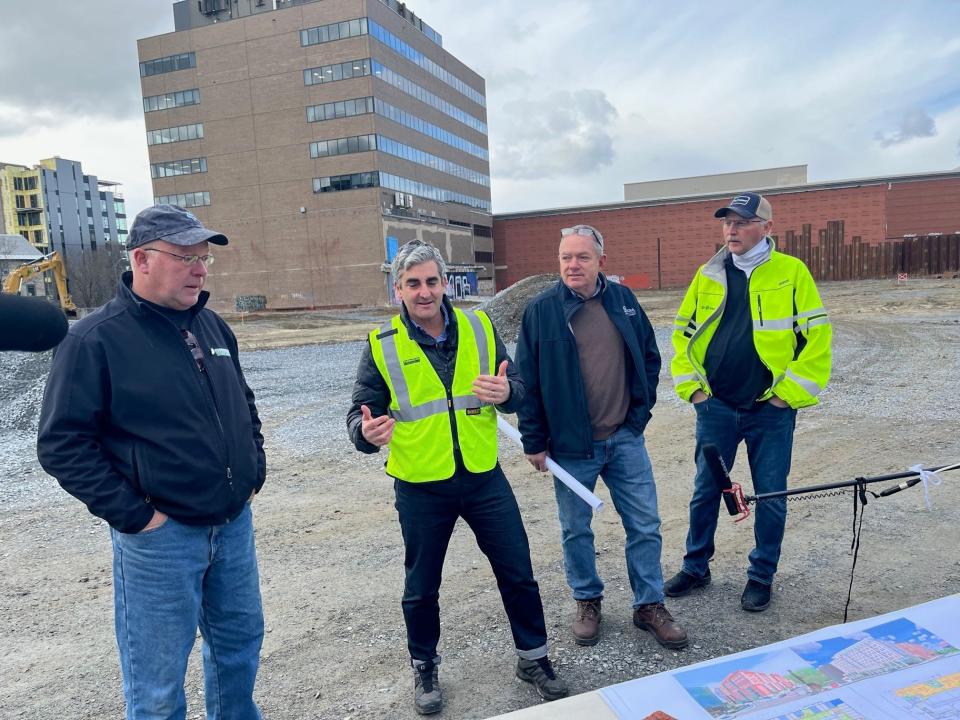
Weinberger said he wanted to "set the record straight" on CityPlace.
"A lot of people think of that as a failure," he said. "(It was) 'the pit' for so long it became controversial. They don't understand it is getting built now. In five or more ways I made that project happen. The local partners are doing the heavy lifting, putting their capital at risk. Their crews are out there doing the work, but this would not have happened without me."
Among the ways he made the project happen, Weinberger cites his decision to "go for it," where the city was concerned.
"It would have been easy to let Don Sinex do whatever he wanted on his private property, but I said, 'No, we're going to do what's in our plan here of getting public streets back, and allowing it to get built up to a much higher level," Weinberger said.
Weinberger got Sinex to agree to reconnecting St. Paul and Pine streets between Cherry and Bank streets as part of the project. Under the local partners' control the project is rising to 10 stories, or 140 feet, the tallest building in Vermont, according to Weinberger.
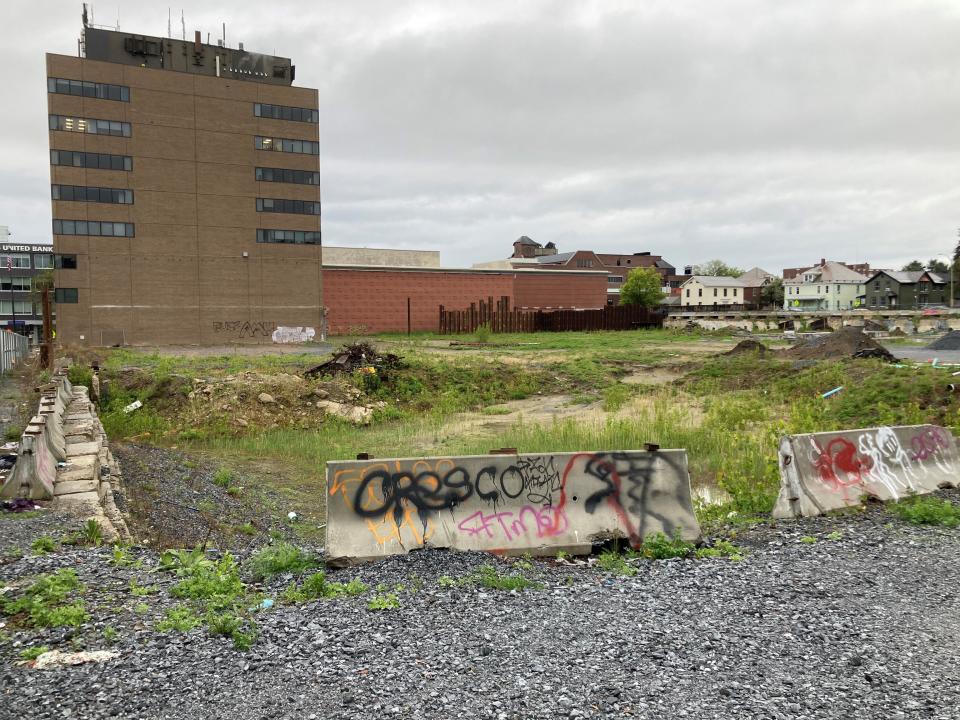
But most important, Weinberger said, he included a provision in the development agreement with Sinex that required continuous construction. It was this provision that allowed the city to sue one of Sinex's erstwhile partners, Brookfield Properties, when construction stalled, and get a settlement agreement that led ultimately to Sinex selling to the local partners, according to Weinberger.
"The settlement agreement put teeth into the continuous construction," Weinberger said. "You get this started by date certain or the city can take over the land. First they would have owed us money, then we would have gotten the land. It was that pressure that's the last reason I said I made this happen."
Tracy's take? Weinberger should have listened to the City Council when he had the chance.
"I'm glad you were able to fix the mess that you created by not listening to people who were telling you Don Sinex was bad news," Tracy said. "That's how I would put it. The more I got to know Sinex, the less I liked him. We raised those concerns over and over. (Weinberger) didn't listen."
Weinberger's one regret is not quickly reversing the decision to cut police officers
Weinberger's only regret from his 12 years as mayor is that he was unable to prevent the gutting of the Burlington Police Department in the wake of George's Floyd's murder in Minneapolis by a white police officer. The BPD lost about 40% of its force following action by the City Council to cut police officers in favor of hiring more mental health professionals and others to work with police.
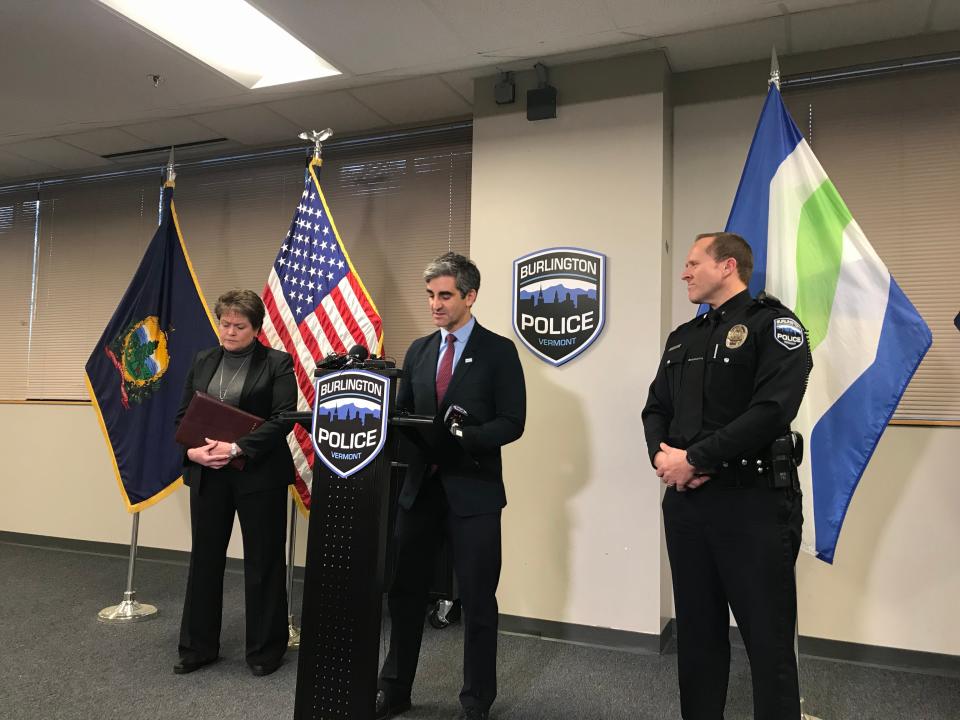
"When people break the laws we need to enforce our laws," Weinberger said. "When you have retail theft, burglaries, petty crimes, people should be arrested for those. Our capacity to do that enforcement even today is much diminished from where it was pre-pandemic. We're closer to 70 officers now. We are authorized for 105. We had about 100. Our low point was down into the low 50s."
It took him four tries with the City Council, Weinberger said, but he ultimately "won the debate that we needed police officers."
"I knew we shouldn't pit racial justice against public safety, we need both and I figured the Council would come to its senses and we'd get that turned around quickly," he said. "That's where I was wrong. It wasn't quick. It took 18 months. I do regret that."
Tracy said Weinberger never embraced what the City Council was trying to achieve.
"We were really pushing for a real transition and a real focus on developing alternatives to sworn officers as the end all be all when it came to dealing with a variety of complex challenges: substance use disorder, mental health, people experiencing homelessness," he said. "The intent clear in that resolution is to build alternatives to having police deal with everything, a more targeted approach with specially trained individuals dealing with issues."
Weinberger wants to stay in the public arena
Now that he is a private citizen again, Weinberger, 54, is deciding with his wife and two daughters what to do next. One thing he knows is he won't be returning to the private sector, where in his first life he was a developer of low-income and affordable housing in Vermont and New Hampshire.
"I haven't made any decisions," Weinberger said. "I do think I have more to give to the people of Vermont."
Contact Dan D’Ambrosio at 660-1841 or ddambrosi@gannett.com. Follow him on X @DanDambrosioVT.
This article originally appeared on Burlington Free Press: Former Burlington Mayor Miro Weinberger contemplates next move

